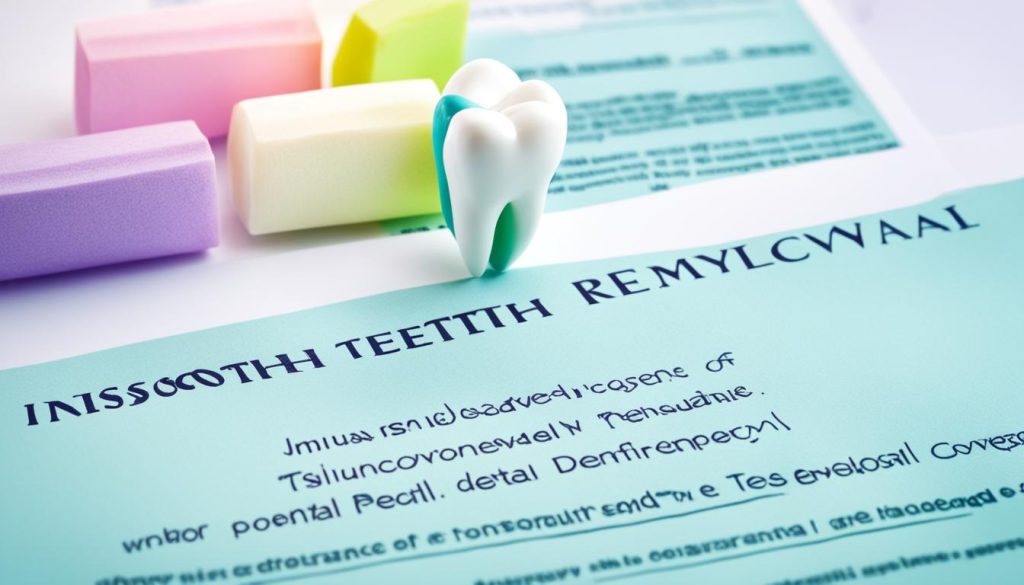Wisdom teeth removal is a common dental procedure that is often necessary to maintain oral health. However, the cost of this procedure can be a concern, particularly for individuals without insurance coverage. If you’re wondering how much wisdom teeth removal without insurance will cost, it’s important to understand the various factors that can influence the overall expenses.
The average cost of wisdom teeth removal without insurance can vary based on several factors, including the type of extraction and the level of impaction. Simple extractions, where the tooth is fully erupted, can range from $75 to $200 per tooth. Surgical extractions, which are necessary for impacted wisdom teeth, can range from $225 to $1,100 per tooth.
Impaction levels can further affect the cost. Soft tissue impaction, where the tooth is covered by gum tissue, can cost between $225 and $850. Partial bony impaction, where the tooth is partially covered by bone, can range from $300 to $950. Full bony impaction, where the tooth is fully covered by bone, can cost between $350 and $1,100.
The cost to remove all four wisdom teeth can range from $300 to $1,800, depending on the impaction level and the type of extraction. It’s important to note that these are estimated costs, and they can vary depending on the dental professional and the specific location.
Additional fees may also be added to the overall cost of wisdom teeth removal. These can include exam fees, X-rays, and sedation, among others. It’s essential to consult with your dental professional to get a comprehensive understanding of the potential expenses involved in your specific case.
While the cost of wisdom teeth removal without insurance can be significant, it’s essential to prioritize your oral health. Seeking professional guidance from a qualified dentist or oral surgeon can help you navigate the financial aspects and explore potential alternative options to make the procedure more affordable.
Factors Affecting Wisdom Teeth Removal Costs
Several factors can influence the cost of wisdom teeth removal. Understanding these factors can help you estimate and plan for the cost of the procedure. Key factors that can affect the overall cost include:
- Complexity of the Procedure: The impaction level and type of extraction required can impact the cost of wisdom teeth removal. Simple extractions are typically less expensive than surgical extractions.
- Anesthesia Level: The level of anesthesia needed during the procedure can also affect the cost. General anesthesia may be required for more complex cases, which can increase the overall expense.
- Skill Level of the Oral Surgeon: The experience and expertise of the oral surgeon can impact the cost of wisdom teeth removal. Highly skilled surgeons may charge higher fees for their services.
- Cost of Living: The cost of living in your area can also play a role in the cost of the procedure. Areas with higher costs of living tend to have higher dental fees.
To give you a better understanding of the cost range, here is a table outlining the estimated cost of wisdom teeth removal based on the complexity of the procedure:
| Procedure Type | Estimated Cost Per Tooth |
|---|---|
| Simple Extraction | $75 – $200 |
| Surgical Extraction (Soft Tissue Impaction) | $225 – $850 |
| Surgical Extraction (Partial Bony Impaction) | $300 – $950 |
| Surgical Extraction (Full Bony Impaction) | $350 – $1,100 |
Remember, these costs are estimates and can vary depending on various factors. It’s essential to consult with your oral surgeon for an accurate assessment of the expenses associated with your specific case.
Being aware of these factors can help you plan and budget for the cost of wisdom teeth removal. If you have dental insurance, it’s crucial to review your coverage and understand the reimbursement details for the procedure. Next, we’ll explore the coverage options for wisdom teeth removal with insurance.
Insurance Coverage for Wisdom Teeth Removal
When it comes to wisdom teeth removal, dental insurance can be a valuable resource to help alleviate some of the financial burden. By understanding the coverage provided by dental plans, you can make informed decisions to reduce the cost of the procedure. While the specific coverage can vary depending on the plan, having insurance in place can lead to significant savings.
Most dental plans offer coverage for wisdom teeth removal, usually covering a percentage of the total cost. This percentage typically ranges from 50% to 80% depending on the plan and the terms and conditions set by the insurance company. To take full advantage of your insurance coverage, it’s crucial to review the details of your plan and understand the associated costs.
Here are a few key factors to consider:
- Copay: Some dental plans require a copay for specific procedures, including wisdom teeth removal. This is a fixed amount that you are responsible for paying out of pocket, regardless of the total cost of the procedure.
- Deductible: The deductible is the amount you must pay before your insurance coverage kicks in. It’s important to know your deductible and factor it into the overall cost of the procedure.
- Coinsurance: Coinsurance refers to the percentage of the total cost that you are responsible for paying after your deductible has been met. For example, if your plan covers 80% of the cost and you have a 20% coinsurance requirement, you would be responsible for paying the remaining 20%.
- Annual Maximum: Dental plans often have an annual maximum, which is the maximum amount they will cover in a calendar year. If the cost of wisdom teeth removal exceeds the annual maximum, you may be responsible for paying the difference.
- Restrictions: It’s important to be aware of any restrictions or limitations on coverage that may apply. These may include waiting periods, pre-existing condition exclusions, or specific criteria that must be met for the procedure to be covered.
To fully understand your insurance coverage for wisdom teeth removal, it is recommended to reach out to your insurance provider or speak with your dentist or oral surgeon’s office. They can provide detailed information and guide you through the process.
Remember, dental insurance can significantly reduce the cost of wisdom teeth removal, making it a more financially feasible option. Take the time to review your coverage and explore all the available options to ensure you receive the maximum benefits from your insurance plan.

| Insurance Coverage | Cost Percentage Covered | Additional Costs | Conditions |
|---|---|---|---|
| Plan A | 80% | $25 copay $500 deductible |
None |
| Plan B | 50% | $50 copay $750 deductible |
6-month waiting period |
| Plan C | 70% | $100 copay $1,000 deductible |
Pre-authorization required |
Alternative Options for Affordable Wisdom Teeth Removal
For those without insurance or limited coverage, there are alternative options available to make wisdom teeth removal more affordable. Consider the following options:
Payment Plans
If you’re concerned about the cost of wisdom teeth removal, some dentists and oral surgeons offer payment plans. These plans allow you to spread out the cost of the procedure over a period of time, making it more manageable for your budget. By opting for a payment plan, you can receive the necessary treatment while easing the financial burden.
Dental Discount Plans
Another option to consider is dental discount plans. These plans provide savings on various dental procedures, including wisdom teeth removal. With a dental discount plan, you can access reduced rates for the extraction, helping you save on overall costs. However, it’s important to note that dental discount plans may have restrictions on the network of participating dentists or oral surgeons.
To make the most of these alternative options, it’s recommended to research and compare different payment plans and dental discount plans available in your area. By exploring these affordable wisdom teeth removal options, you can find a solution that fits your financial situation and ensures the necessary dental care.
Risks and Considerations for Wisdom Teeth Removal
While wisdom teeth removal is generally a common and safe procedure, it’s important to be aware of the risks and considerations involved. Understanding these factors can help you make an informed decision and properly prepare for the extraction.
Risks of Wisdom Teeth Removal
Like any surgical procedure, wisdom teeth removal carries certain risks. Although complications are rare, it’s essential to be aware of the potential complications and discuss them with your oral surgeon.
- Dry Sockets: This is one of the most common complications following wisdom teeth extraction. It occurs when the blood clot that forms in the extraction site is dislodged or dissolves, leaving the bone and nerve exposed. Symptoms may include severe pain, bad breath, and an unpleasant taste in the mouth.
- Paresthesia: Paresthesia refers to numbness or tingling in the tongue, lips, chin, or other areas of the mouth. It can result from nerve damage during the extraction procedure. Most cases resolve on their own over time, but in rare cases, the numbness may persist.
- Infection: Infection can occur if bacteria enter the extraction site. Signs of infection include excessive swelling, severe pain, fever, and pus drainage. Prompt treatment with antibiotics is crucial to prevent further complications.
- Bleeding: Some bleeding is normal after the extraction, but excessive or prolonged bleeding may require medical attention. Applying gentle pressure with a clean gauze pad can help control bleeding.
- Damage to Adjacent Teeth or Structures: In rare cases, neighboring teeth, sinus cavities, or nerves may sustain unintended damage during the extraction process.
Considerations for Wisdom Teeth Removal
Before undergoing wisdom teeth removal, it’s important to consider several factors that can affect the procedure and recovery:
- Age: Younger patients often have an easier recovery since the wisdom teeth roots may not be fully formed yet, and the bones are more flexible.
- Impaction Level: The position and impaction level of your wisdom teeth can affect the complexity of the extraction. Fully impacted teeth may require more extensive surgical procedures.
- Overall Oral Health: Wisdom teeth can be prone to decay and gum disease due to their location at the back of the mouth, making extraction a preventive measure to maintain oral health.
- Recovery Time: The recovery period can vary depending on factors such as the number of wisdom teeth removed, the complexity of the extraction, and your body’s healing ability.
It’s important to discuss these considerations and any concerns you may have with your oral surgeon. They will evaluate your specific case and provide personalized recommendations to ensure a smooth and successful wisdom teeth removal.
Conclusion
Addressing oral health issues often requires the removal of wisdom teeth, but the cost can be a major concern. Without insurance, the expense of wisdom teeth removal can vary greatly, ranging from $75 to $1,100 per tooth, depending on the type of extraction and level of impaction. Additional fees, such as exams, X-rays, and sedation, may also contribute to the overall expenses.
Fortunately, dental insurance coverage can help alleviate some of the financial burden, although the extent of coverage depends on the specific plan. Exploring alternative options, such as payment plans offered by dentists or dental discount plans, can also provide more affordable solutions for those without insurance. It’s crucial to consider the risks and benefits of the procedure and place a high priority on maintaining oral health.
By evaluating the potential expenses associated with wisdom teeth removal, individuals can make informed decisions and take necessary steps to address their oral health needs. Prioritizing oral health and exploring various options for cost management can help ensure a positive outcome and a healthier smile in the long run.







